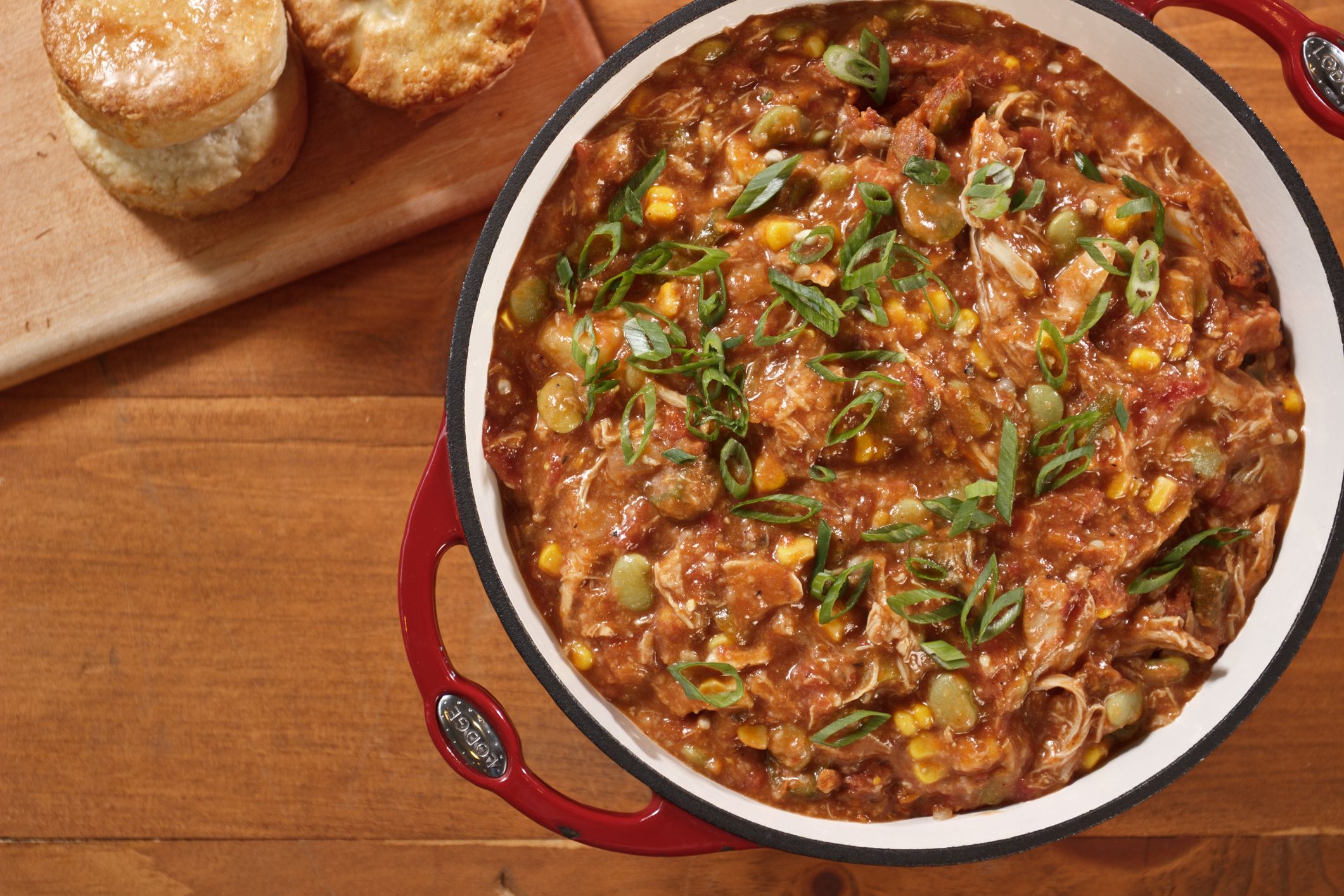
Almost 300 people were poisoned after eating stew at a church event in North Carolina.
Hundreds of churchgoers fell ill after attending a barbecue at the Poplar Tent Presbyterian Church in Concord on November 1, where they dined on foods including barbecue pork, Brunswick stew and coleslaw.
After hundreds of the thousands of attendees suffered food poisoning symptoms, samples from dishes were sent to the Centers for Disease Control and Prevention (CDC) for testing. That's according to the Cabarrus Health Alliance (CHA) department, which serves Cabarrus County.
The Brunswick stew—a popular southern dish generally consisting of meat with tomatoes, beans and vegetables—tested positive for Clostridium perfringens (C. perfringens). None of the other foods tested positive for the harmful bacteria.
Read more: Southern diet blamed for high blood pressure among African-Americans
Most commonly found in raw meat and poultry, C. perfringens is one of the most common causes of food poisoning in the country according to the CDC. C. perfringens thrives in low-oxygen environments, and can reproduce quickly at temperatures between 109°F–117°F (43°C–47°C). The bug triggers an estimated 1 million cases of foodborne illness every year.
It generally lurks in large batches of food kept warm for long periods of time. As such, products including beef, poultry, gravies and pre-cooked and dried foods are the biggest culprits for spreading the bacteria.
Once it enters the body, it produces a toxin inside the intestines that can trigger symptoms including diarrhea and stomach cramps, which materialize six to 24 hours after infection. The symptoms usually pass within a day.
Although anyone can be struck by C. perfringens, young children and the elderly are at greatest risk and can suffer symptoms lasting as long as two weeks. In rare severe cases, the condition can also cause dehydration.
To prevent the spread of C. perfringens, the CDC advises cooks to ensure food, particularly poultry and beef, are cooked to the appropriate temperature and stored at either 140°F or hotter, or 40°F or cooler. Leftovers should be refrigerated at 40°F or less within two hours of being prepared.
Big batches of food, such as stews and large cuts of meat, should be cut into smaller servings before being cooled. Food should be heated to at least 165°F (74°C) before re-serving.
And if in doubt, throw food out, the CDC stressed. "Any food that has been left out too long may be dangerous to eat, even if it looks OK," it states on its website.
At the time the incident was first reported, Erin Shoe, Chief Operating Officer at CHA, said in a statement: "We are encouraging anyone who ate at the church BBQ on November 1, 2018 to throw away any food they may have taken home with them." Anyone who attended is encouraged to email their name and contact information to investigation@cabarrushealth.org in order aid the ongoing investigation."
"We've talked with people who ate there who are sick and we've talked to people who ate there and are not sick. We cannot say with absolute certainty that food from the BBQ is the culprit but we do think it's important to let the community know just in case they have left overs," she concluded.
Uncommon Knowledge
Newsweek is committed to challenging conventional wisdom and finding connections in the search for common ground.
Newsweek is committed to challenging conventional wisdom and finding connections in the search for common ground.
About the writer
Kashmira Gander is Deputy Science Editor at Newsweek. Her interests include health, gender, LGBTQIA+ issues, human rights, subcultures, music, and lifestyle. Her ... Read more
To read how Newsweek uses AI as a newsroom tool, Click here.








